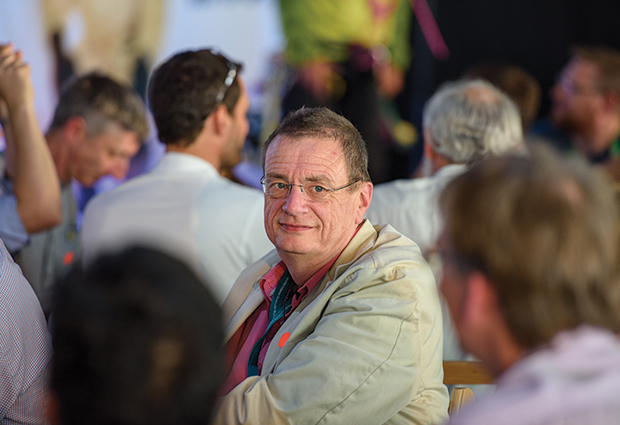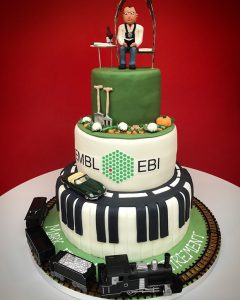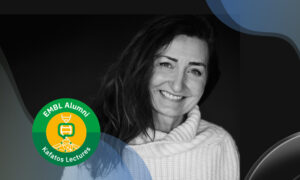
20 years of building teams and sites
Mark Green, EMBL-EBI’s Head of Administration reflects on his time at the institute

After beginning his career at EMBL Heidelberg as the Internal Auditor, Mark went on to become the first Head of Administration at EMBL-EBI. We catch a glimpse of the personal highlights that defined Mark’s 20-year journey at EMBL as he retires to enjoy the next phase of his life.
How did you first start at EMBL?
I started at EMBL Heidelberg as an internal auditor in ’97. It was a time of great turmoil for me because I had just begun a relationship with my wife-to-be a few days before being offered the job. For almost three years we had a long-distance relationship, her in the UK, me in Germany. That kind of thing was much more difficult back in the day before free roaming and all this social media malarkey. When the opportunity of a shared role between Heidelberg and Hinxton came up, I pretty much leapt at it. The travelling between sites continued until about 2003, when I finally became full time at EMBL-EBI.
What was it like to work at EMBL-EBI?

My first impression of EMBL-EBI was that it needed to improve its security. A few days before I officially started my job I simply strolled through the campus entrance, located my predecessor’s office and spent a few hours going through his drawers. Then I strolled right out without being asked a single thing by anyone.
When I officially started, I made it a priority to introduce a swipe-card system to improve security. This caused uproar. I had an email from one chap who said that he would end up breaking his arm trying to push the locked doors open. I really did wonder what sort of people I’d landed amongst. However, a couple of weeks later, I got an email from the same chap saying that “the swipe cards have been in for a fortnight, I haven’t broken my arm. I may have overreacted.” That made me think that working at EMBL-EBI would be full of showers and sunshine, and I’ve not been disappointed. Since then, EMBL-EBI has grown massively from 135 people to over 600. Oh, and the swipe card system is still in place. To my knowledge, nobody has broken an arm because of it yet.
I think the biggest achievement is building teams, not buildings.
What have been your greatest achievements?
Of course, we built the East Wing, the South Building, and we completely refurbished the Main Building. We transformed the place and it took huge amounts of effort by a large number of people. But I think the biggest achievement has been building teams, not buildings. EMBL-EBI is a home for bright ideas and the people who can make them happen. Lots of campuses have shiny new buildings, but few have people who are as driven and collaborative as the ones you find at EMBL-EBI.
What are you going to miss?
The people and the intellectual energy in this place. The people that we’ve got; the nature of what they do; the way the environment has been set up. If you look at the arc established by Michael Ashburner and Graham Cameron, carried on very much by Janet Thornton and followed through by Rolf Apweiler and Ewan Birney, the idea is to create an environment where people work together. EMBL-EBI is a community. It’s full of a cracking intensity of interest and curiosity that brings out the best in people.
EMBL-EBI is full of full of a cracking intensity of interest and curiosity that brings out the best in people.
What does the future hold for you?
One thing the future doesn’t hold is waking up to an alarm clock. I’m going to wake up to sunlight. Once awake, I shall be writing a book on Shakespeare. There are plenty of books about Shakespeare but I think there’s a story that could be told which is much more integrated; a story about an ordinary man.
Then, of course, there’s photography, gardening and cricket and spending time with my beloved. For the first time ever, I’m going to watch an entire test match from start to finish in September, at the Rose Bowl in Southampton – England v India. For years, my brother-in-law has been badgering me to watch rugby and football with him. This year, for the first time, I might say yes more often.


